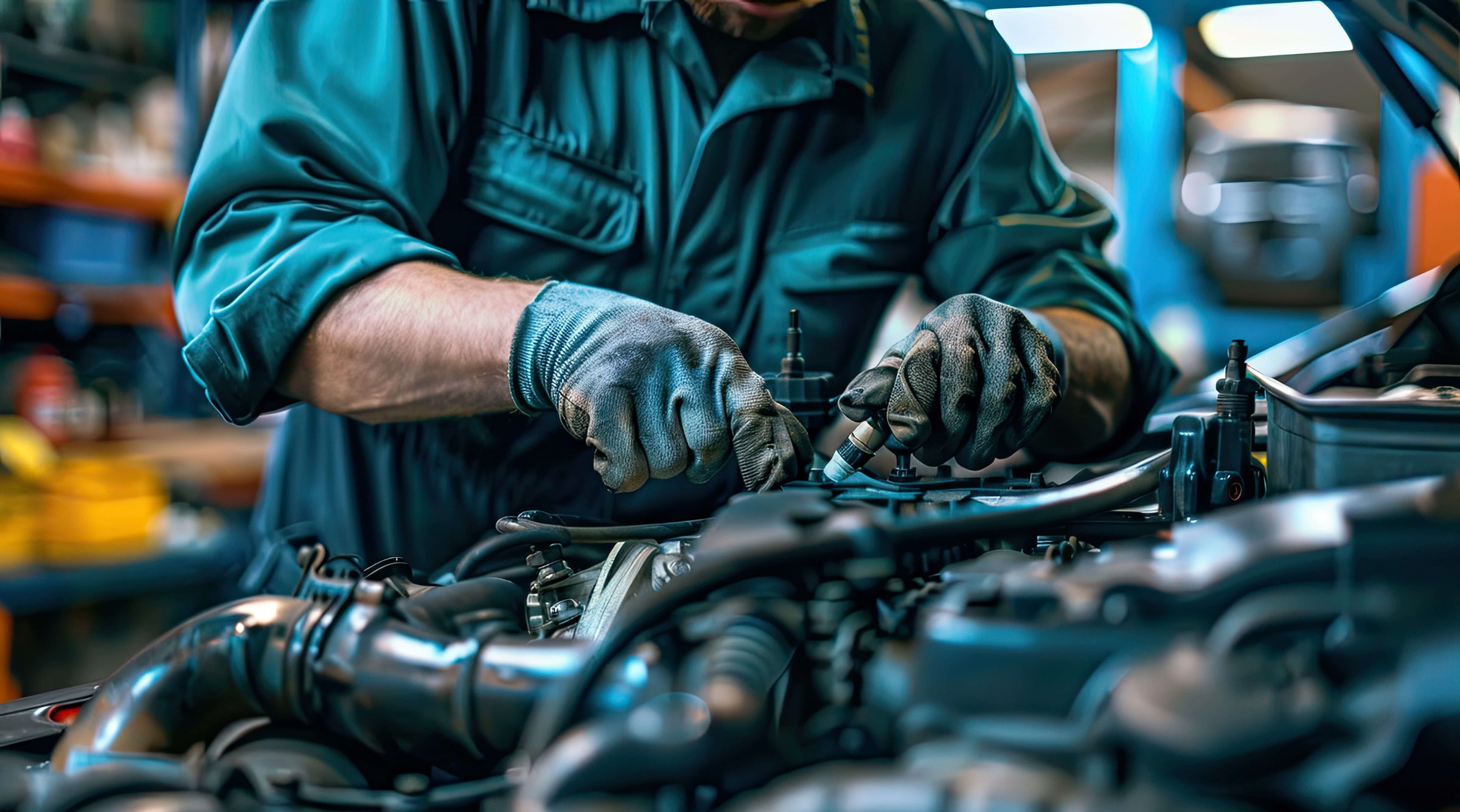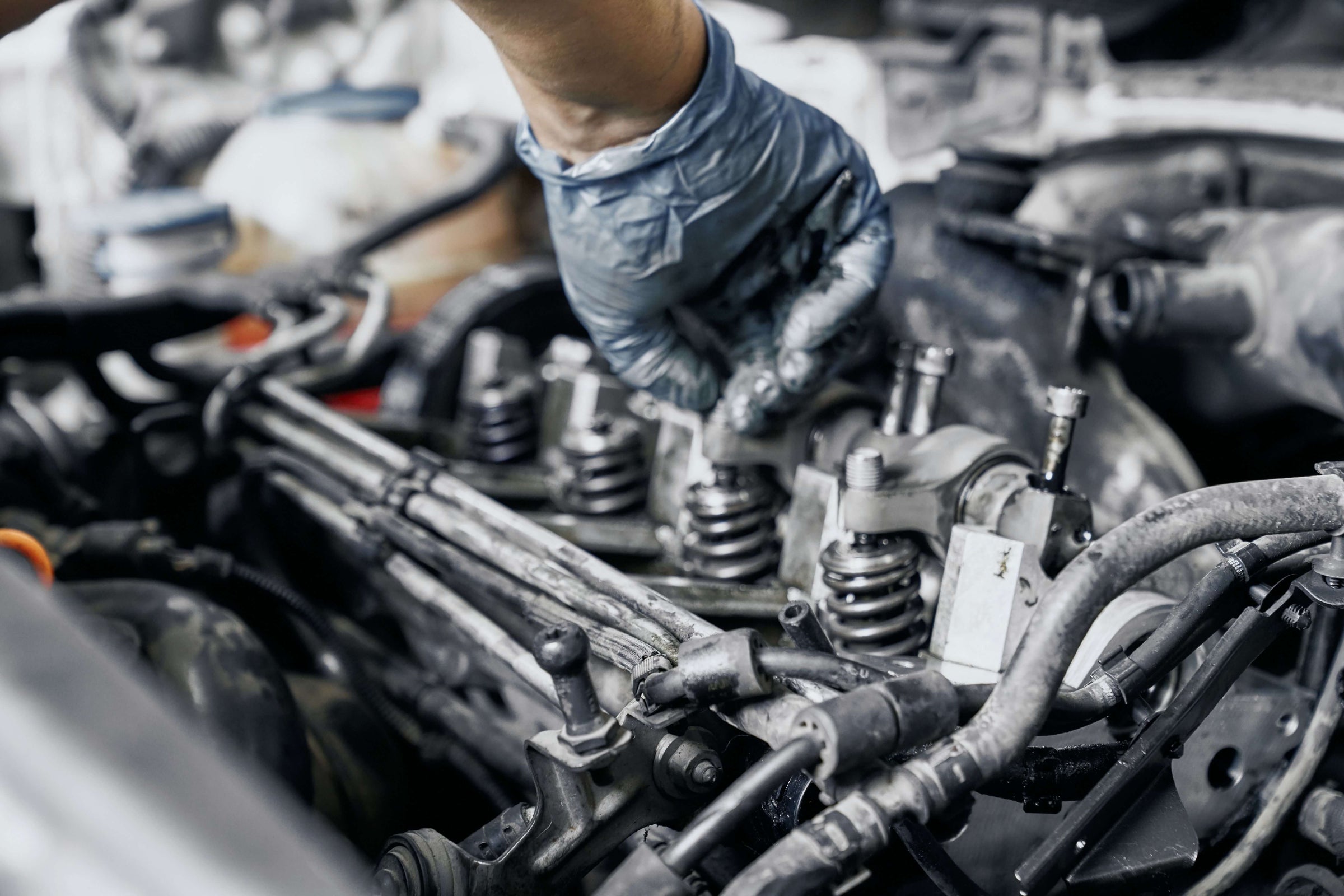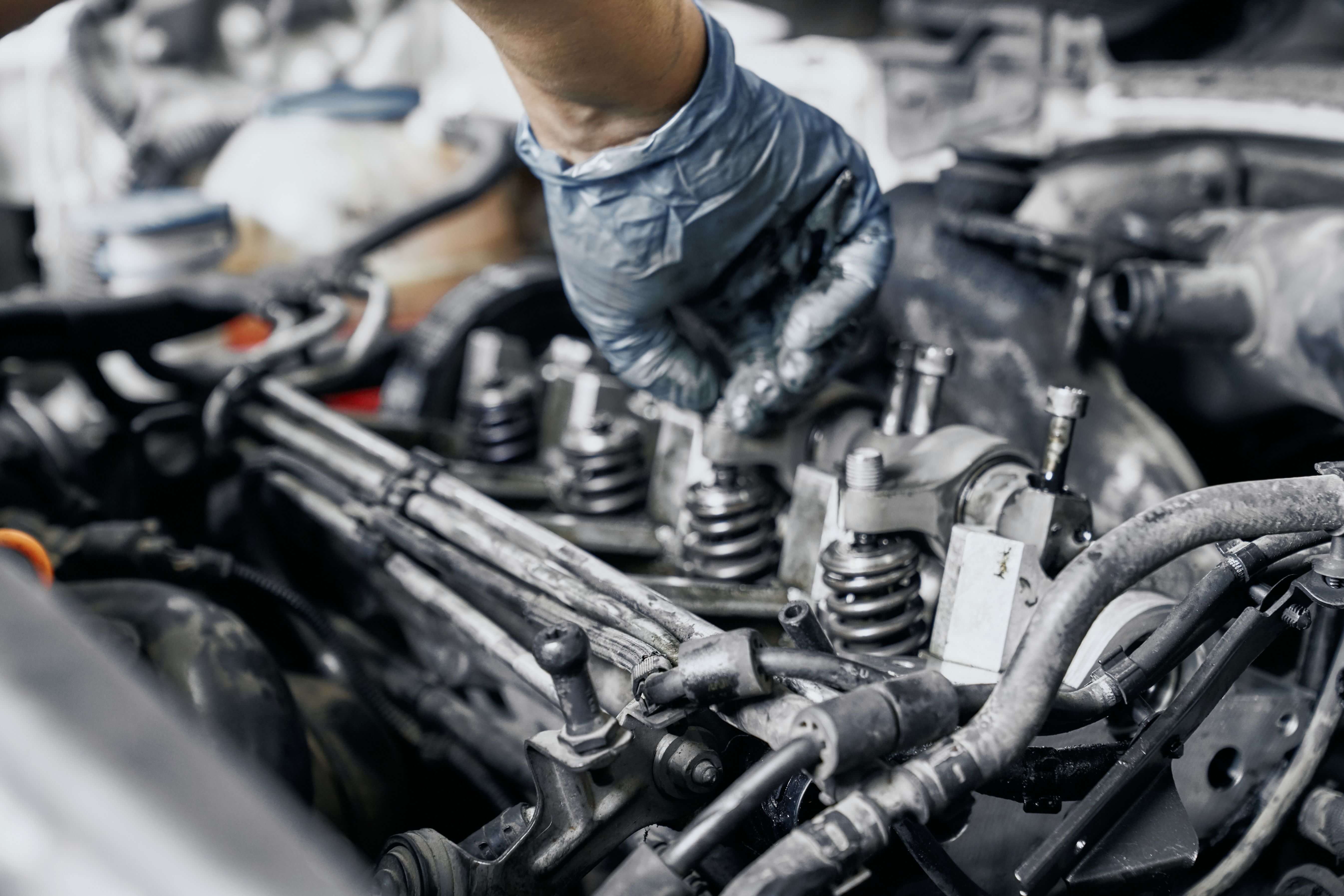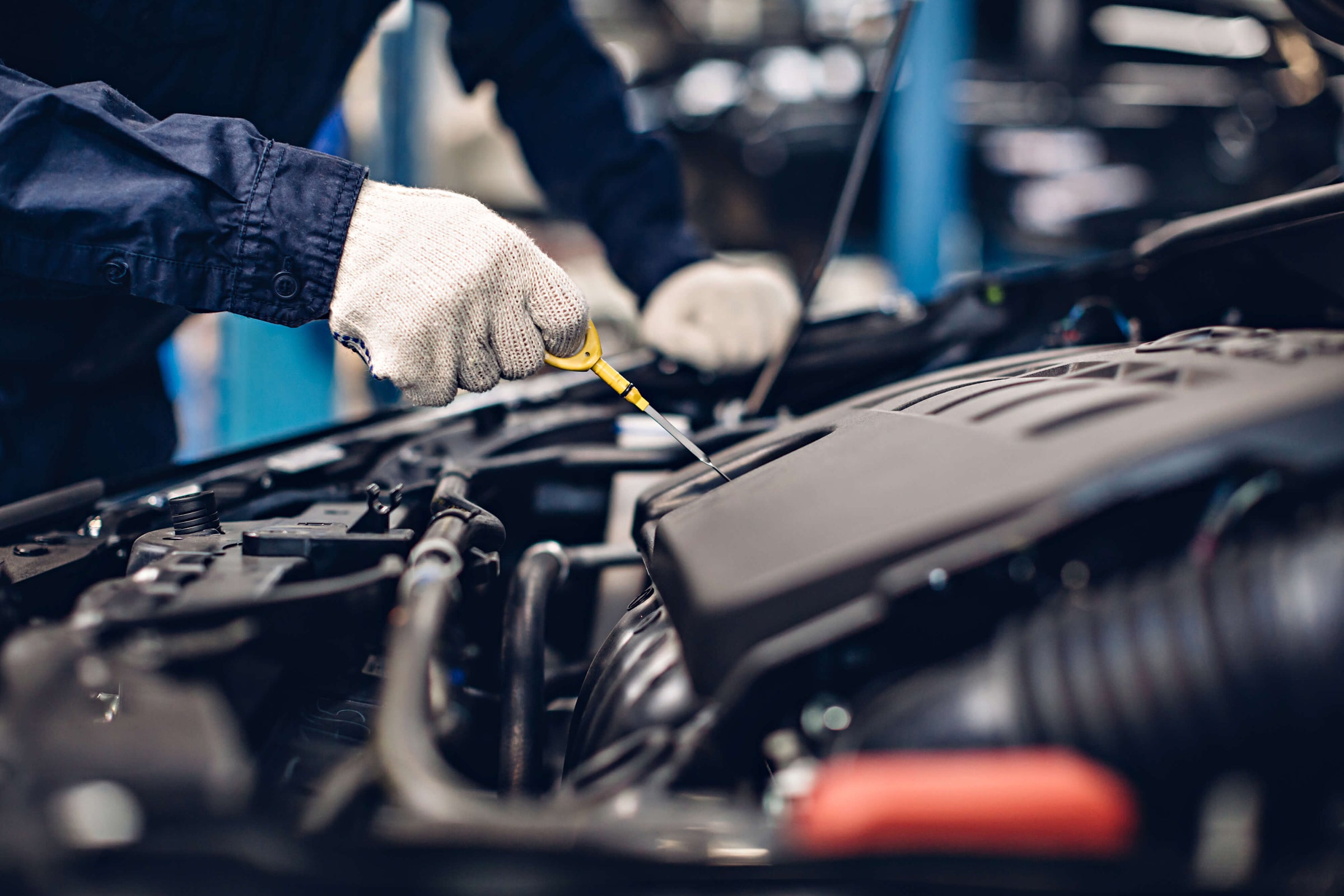In the motoring world, the diesel vs gas debate has been raging for many decades. While diesel engines and gas engines are similar in a lot of ways, there are key factors that affect the durability and longevity of each. But do diesel engines last longer?
They certainly have a reputation for being more durable and lasting longer than their gasoline counterparts. Part of this reputation comes from the fact that diesel engines are usually used in heavy-duty vehicles and machines that require long hours of use, often in tough conditions. To be able to do this, engineers build diesel engines with toughness in mind.
So, how long do diesel engines last? And how can you take care of your diesel engine to ensure that it runs smoothly for years to come? Whether you're driving a personal vehicle, a heavy-duty truck, or are in charge of large machinery, knowing the life expectancy of a diesel engine and how to care for it is essential not just for maintaining optimal performance, but for saving money in the long run.
How long do diesel engines last?
To estimate how long an engine will last, mechanics and engineers often talk in ranges or miles rather than units of time. So how many miles can a diesel engine last? You’ll find a range of answers, with ranges starting at around 300,000 miles and extending all the way up to 1,500,000 miles.
It’s not a straightforward question to figure out exactly how long a specific piece of machinery will last. When it comes to diesel engines specifically, it’s because there are many factors that can increase or decrease the engine's lifespan, such as:
General care and maintenance
The best way to ensure your diesel gets to the higher end of the range is to carry out proper regular maintenance in line with the manufacturer’s recommendations. This includes things like regular oil changes, filter replacements, consistent servicing, and regular inspections. You can’t beat proper maintenance, as this helps prevent wear and tear, ensuring the engine is always running smoothly.
Fuel quality
If the engine is the heart of your diesel vehicle, then fuel is its lifeblood. Ensuring that your fuel has enough detergents, cetane, and lubricity is the best thing that you can do to extend your vehicle’s longevity and protect your entire fuel system, including your fuel injectors, turbo, and DPF. Sadly diesel fuel in the US doesn’t have enough of these properties, which leads to the generation of much more wear and tear on your vehicle.
Fortunately, there is a simple and cost-effective solution to boost your diesel fuel’s detergents, cetane, and lubricity. Regular use of Archoil’s AR6500 Diesel Treatment provides the boost that your diesel fuel needs to clean and protect your fuel system. The specially designed formulation not only cleans your fuel injectors, turbos, and DPF but provides a cetane boost of up to 8 points to promote efficient combustion of fuel in your engine.
Driving style
It might sound obvious, but the way you use your vehicle will play a significant part in how long the engine lasts. Constantly pushing an engine to its limits rather than using it in line with the manufacturer’s recommendations will cause the engine to fail much earlier than it otherwise would.
Think about it: a trucker who does long-hauls at consistent speeds will add much less wear and tear to their diesel engine than a city driver who is making lots of short trips, often in stop-and-go traffic. Likewise, someone with an aggressive driving style who accelerates and brakes hard will put much more strain on their diesel engine than someone with smooth driving habits.
Operating conditions
All mechanical components have an optimal performance range of external conditions. Engines that operate in better conditions will simply last longer than those that do not. As an example, a truck operating in mountainous areas of Alaska in the middle of winter will suffer a lot more wear and tear than a truck in somewhere like Kansas, which has more moderate temperatures and low-stress environments. The more extreme the operating conditions, the shorter an engine’s lifespan will be.
Do diesel engines last longer than gas?
Typically, diesel engines do last longer than gas engines. As we have seen above, with the right care a diesel engine can last for several hundred thousand miles to over a million, but a typical gas engine only has a lifespan of around 200,000 miles. This is down to three main factors: engineering, fuel, and revs, which we will outline below. For a more in-depth look at diesel engines, check out our diesel engine guide.
Why do diesel engines last longer?
Engineering
Put simply, engineers build diesel engines with stronger, more durable components that can withstand higher pressures and temperatures. Diesel engines are generally much larger than gas ones, which allows each component, such as the crankshaft, camshaft, and cylinder heads, to also be larger.
Diesel engines also have increased bearing sizes when compared to gas engines, which means they can use more oil to keep parts more lubricated, leading to less wear and tear. Diesel engines are also gear-driven, which means there are no timing belts or chains that can fail relatively easily.
Fuel
As discussed above, the type of fuel your engine uses is a major factor in determining its longevity. Diesel fuel has much better lubricating properties when compared to gas, which means reduced friction on your engine components, and therefore an increased lifespan. Diesel fuel has a consistency similar to that of a light oil, whereas gasoline has a much lower viscosity, making it a poorer lubricant. Gasoline can also combine with water to create sulfuric acid, which can lead to the corrosion of metal parts within your engine.
Revs
Revs are a unit of measurement that is used to determine how fast an engine is spinning, measured in revs per minute (RPM). Rev is short for revolution, which in this context relates to how many times the engine's crankshaft rotates or how many times each piston moves up and down per minute. The more revs an engine has to make, the more wear and tear it will accumulate.
A typical diesel engine will run between 1200 and 1600 RPM, whereas a typical gasoline engine can be double that. Put simply, that means a gas engine is doing around twice the amount of work as a diesel engine and therefore generating twice as much work-related degradation.
Tips for extending diesel engine life
The lifespan of a diesel engine can vary wildly depending on many factors. So, to help you get the most out of your diesel engine, our experts have put together some tips for extending your diesel engine life.
Change your oil frequently.
Each manufacturer is different, but they typically advise that you should change your engine oil every 5000 to 7000 miles. Oil is what keeps your engine lubricated and running smoothly, but it degrades over time as it collects dirt and debris. If you don’t change your oil regularly, this dirt and debris builds up and can damage your engine.
Change your oil filter as well.
The oil filter gathers up some of the dirt and debris that your oil collects over time. The engine oil filter is essentially a shield that protects your engine from sludge, dirt, and debris. But eventually, the filter will get clogged, preventing it from protecting your engine.
Keep your engine lubricated.
We’ve already touched on how lubrication is key to an engine’s functionality, but it’s something that many people do not even consider as part of their vehicle care. Simply add a friction modifier, such as Archoil’s AR9100, to your oil during each oil change. This specially designed product uses nano lubrication, offering any oil an upgrade by reducing friction, reducing heat, extending oil drains, and maintaining a clean engine.
Warm up your vehicle.
Personal trainers always recommend warming up before going for a run or playing a sport. In the same way, it’s best practice to let your engine warm up before you start driving. By allowing your engine to get to the correct operating temperature before driving, you can ensure that it will combust correctly, helping to increase engine lifespan. This is more important in colder climates, where engines will need more time to warm up.
Use high-quality fuel
If getting the longest life out of your engine is a priority, then you need to use a high-quality diesel fuel additive to keep your fuel system clean and reduce engine wear. Because diesel fuel quality in the US is so poor, consistently using diesel from the pump will damage your fuel system over time, and carbon deposits build up and decrease their efficiency.
The only way to overcome this is to use a diesel fuel additive such as Archoil’s AR6500. By using powerful detergents, those damaging deposits are dislodged and removed from your fuel system, significantly boosting your engine's lifespan. It also gives your diesel fuel a boost to cetane and lubricity, promoting complete fuel combustion and preventing wear and tear caused by friction between parts.
Watch your driving habits.
You should try and avoid pushing your engine to its limit for no reason. Driving aggressively, which means doing a lot of fast accelerating and heavy braking, is a surefire way to make sure your engine doesn’t last. You should also avoid excessive idling, as it means you’re making your engine work for no reason.
Conclusion
Diesel engines are more durable and have a longer lifespan than gas engines, meaning you’ll get many more miles out of them before you run into problems. But, diesel engines will only last a long time if you look after them properly. That’s why we recommend carrying out proper maintenance, improving your fuel quality with diesel fuel additives, and driving sensibly. By following these simple steps, you can help maximize the lifespan of your diesel engine.
Want to learn more about diesel fuel or read some more handy car maintenance guides? Take a look at our Resources page for a range of informative articles written by our auto experts.








